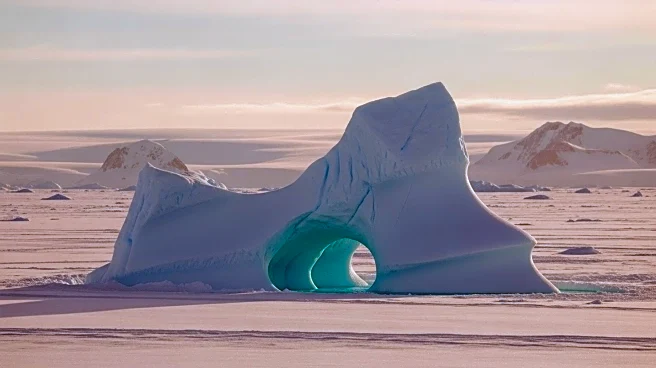What is the story about?
What's Happening?
Recent research has uncovered that East Antarctica's interior is warming at a faster rate than its coastal areas, driven by warm air from the Southern Indian Ocean. This study, led by Naoyuki Kurita from Nagoya University, utilized 30 years of weather station data to identify this warming mechanism, which current climate models fail to capture. The findings suggest that the world's largest ice reservoir may be more vulnerable to climate change than previously thought. The research involved data collection from three unmanned weather stations in East Antarctica, revealing temperature increases at a rate of 0.45-0.72°C per decade.
Why It's Important?
The warming of East Antarctica's interior has significant implications for global climate change predictions and the future of Antarctic ice loss. As the region contains about 70% of Earth's freshwater, accelerated warming could lead to increased ice melt and rising sea levels, impacting coastal communities worldwide. The study highlights the need for improved climate models that account for this newly identified warming mechanism, ensuring more accurate projections of Antarctic ice loss and its global consequences.
What's Next?
Future research will likely focus on refining climate models to incorporate the warming mechanism identified in East Antarctica. Scientists may also investigate the potential for warming and surface melting to reach coastal areas, which could further accelerate ice loss. Additionally, international efforts to address climate change may need to consider the implications of these findings for global sea level rise and the protection of vulnerable coastal regions.
Beyond the Headlines
The discovery of a hidden climate driver in East Antarctica underscores the complexity of climate change and the importance of comprehensive data collection in remote regions. It also highlights the interconnectedness of global climate systems, as changes in the Southern Indian Ocean influence atmospheric patterns in Antarctica. This research may prompt a reevaluation of climate change strategies and policies, emphasizing the need for adaptive measures to mitigate the impacts of accelerated ice loss.















